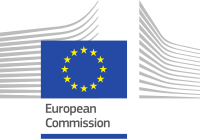Commoners Voices
“Commoners Voices” hosts narratives – both visual and verbal – about social change and social justice. In this section we can communicate and share descriptions of the world we live in, of what we know, and of what we desire.
“liberation is always in part a storytelling process: breaking stories, breaking silences, making new stories”
In the name of a more equitable social and economic vision of the world, thousands of people have occupied Wall Street, started debates, and challenged north-African authorities, all inspired by narratives, creating new narratives that in turn inspire us. We share Rebecca Solnit’s view on storytelling: “liberation is always in part a storytelling process: breaking stories, breaking silences, making new stories. A free person tells her own story. A valued person lives in a society in which her story has a place". We can change things as we start from the story we can tell!
In this spirit, commonfare.net aims to connect initiatives and experiments of social collaboration, alternative economy, self-management and self-production of resources, which are an expression of local circumstances and specific needs of their community. We want to map the experiences of those collectives that face their economic and life problems starting from their social relations on the basis of mutual care and solidarity.
These initiatives pursue new forms of social collaboration starting from local needs and desires; they constitute new social and collective experiments within the “economy of us”.
These experiences place them outside of the institutional political arena, and yet they aim to bring about their own political vision which is outside the closed universe of private property and within the open space of what are called the commons.
More specifically, we aim to make visible those initiatives, or “good practices”, which meet some basic requirements in terms of social significance, and ensure the following criteria:
- effectiveness (in terms of achieving the goals set)
- sustainability (in terms of financial and management autonomy)
- innovation (in terms of meeting and adapting to the initial needs)
- reproducibility (in terms of the ability to reproduce them in similar contexts)
- transferability (in terms of possible use in different contexts and sectors)
Examples of Commonfare good practices are ethical purchasing groups, free software communities, co-housing groups, self-revitalization projects of old abandoned buildings, Fab Labs, co-working spaces and time banks, urban vegetable gardens, community-based and self-organised gyms, mutual aid practices, and networks of artists and freelancers. These initiatives pursue new forms of social collaboration starting from local needs and desires; they constitute social and collective experiments within the “economy of us”. They are diverse and are all welcome on commonfare.net: if you want to tell us about projects or groups that you consider inspiring, please get in contact. Do let people know your story and collective experience! Connect with people and collectives to build up the “economy of us”!
Public benefits
Commonfare.net aggregates and provides useful information about local public benefits available in Europe. We are collecting information about welfare state provisions at local and national level beginning in Croatia, Italy, The Netherlands. This way we aim to help the potential beneficiaries about the existing policies and measures that could lead to improving their life. Examples of public benefits are the inability allowance that provides specific and targeted social assistance measures to people unable to work, measures to support unemployed persons who wish to start their own business, student loans for people under 30 years old who desire to follow a vocational training or want to go to an accredited college or university.
We aim to help the potential beneficiaries about the existing policies and measures that could lead to improving their life
We are also working to facilitate Commoners to add their own information on social needs and related open data from relevant and official sources that may help to address those needs. If you want to add or update information on public benefits in your area, contact us.
The information collected and published on commonfare.net may also be useful to policy makers, trade unions, social movements, and NGOs. The number of visited pages per topic, or the kind of information added by people, will become a data source relevant for monitoring over time the changes in the societal needs, and opening up space for action.
Commonplace
Commonplace is where you can offer and ask for help, resources, skills and knowledge. You can do this for free, for direct trades, or you can ask to exchange for Common Coin, the digital token used on commonfare.net. Commonplace is primarily a place to help you connect with others to share and exchange to build each other's capacity and welfare – a place to strengthen the common good, rather than a marketplace dedicated to financial transactions.
 Commonfare is developed thanks to the project PIE News (
Commonfare is developed thanks to the project PIE News (